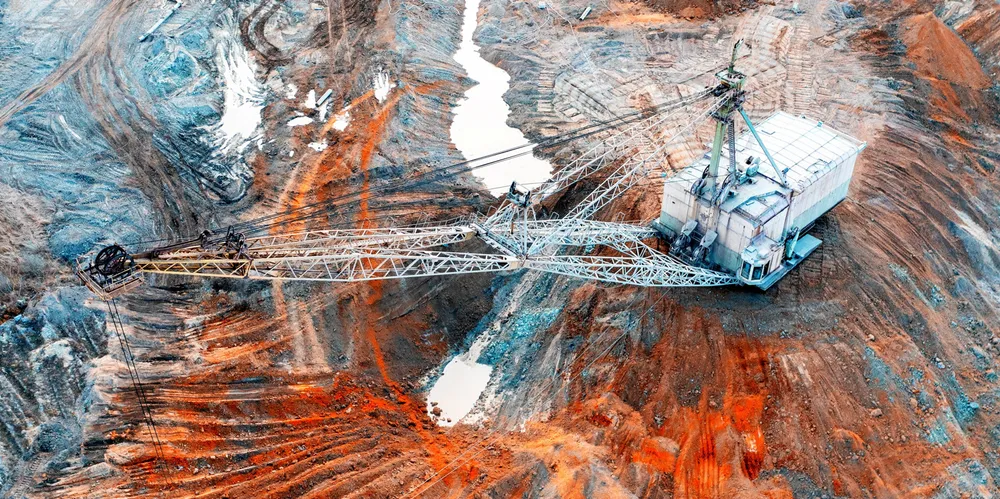'Unacceptable' | Mining of energy transition minerals is failing on human rights protection: NGO
Public support for the energy transition is being squandered by an approach that 'entrenches inequality and abuse', report states

Just weeks after the UN Secretary General launched a 100-nation panel to tackle environmental damage and human rights abuses in mining for critical energy transition minerals, a new report by Business & Human Rights Resource Centre (BHRRC), a London-based NGO, has mapped hundreds of cases of alleged abuses stretching back more than a decade.
With the International Energy Agency (IEA) estimating that demand for critical transition minerals will triple by 2030 and increase sixfold by 2040, the BHRRC said data gathered in the new report demonstrated the need for urgent action by the mining sector and governments.
It also warned that failure to address the abuses could ultimately threaten supply of those minerals essential to developing decarbonised technologies such as wind turbines and solar panels, as well as batteries and the electrification of transport.
The report, which focused on the mining of seven key minerals — bauxite, cobalt, copper, lithium, manganese, nickel and zinc — found 631 cases involving allegations of human rights linked to the extraction of transition minerals since 2010, and said 91 of these were recorded in the last year alone.
More than two-thirds of the allegations were associated with just 20 companies, with ten companies associated with more than 50% of all allegations tracked since 2010.
These included names such as China Minmetals, Glencore, Grupo Mexico, First Quantum Minerals, Codelco, Freeport-McMoran, and Solway.
One in four allegations was a report of abuse against workers, including more than 50 allegations of work-related deaths since 2010.
Another one in four (143) allegations related to attacks against people trying to defend human rights.
The report was built on publicly available data, and its authors warned that many more abuses go unreported.
The report said Indigenous Peoples are disproportionately in the frontline for the harmful impacts of transition minerals mining, accounting for 61 allegations, including 36 alleged violations of their right to free, prior and informed consent (FPIC).
People defending human and environmental rights continue to be attacked, with almost one in four attacks recorded against them (143 attacks).
Labour rights abuses, including risks of severe hazards and occupational health issues, accounted for 163 allegations – about a quarter of the total – while 53 of the allegations related to work-related deaths.
The BHRRC reported that of all the companies associated with at least one allegation of abuse, only 39% had a human rights policy in place.
One in two allegations of abuse were linked to the impacts of mining operations on local environment and resources. A total of 309 allegations of human rights abuses were associated with at least one harm to the environment.
The mining site associated with the highest number of alleged violations was Las Bambas, in Peru, with Latin American mines occupying the top six places.
Nearly 320 of the allegations were associated with copper, followed by zinc on 77 and the copper-cobalt combination on 64, nickel on 57 and lithium on 33.
South America accounted for 215 allegations, while cobalt and copper operations in the Democratic Republic of Congo accounted for 56 allegation.
While acknowledging that climate change poses the ultimate threat to human rights and that transition minerals will be needed at scale for technologies on which the energy transition depends, Caroline Avan, Head of Natural Resources and Just Transition at the Business & Human Rights Resource Centre, stated that “findings from our Transition Minerals Tracker expose how the extraction of these minerals is linked to a damning number of human rights abuses.
“A marked increase in labour rights violations, including an unacceptable number of work-related deaths, expose how the sector is blatantly failing at protecting those who generate its profits,” she added.
Avan argued that companies involved in the mining of these transition minerals are not taking the risks seriously enough
“Less than two in five companies linked to allegations of abuse have a human rights policy in place. It is within reach if companies act now to respect rights and build trust with communities and workers,” she stated.
Squandering support
In its summary, the report warned that public support for the energy transition “is being squandered by companies due to an approach which entrenches inequality and abuse – manifesting itself in community and worker protest and resistance to irresponsible investment and business practices.”
But a more responsible corporate approach is possible, where consultation and consent are achieved through models of shared prosperity, corporate duty of care and fair negotiations.
“A fast transition will only be one that is also fair,” it said.
(Copyright)